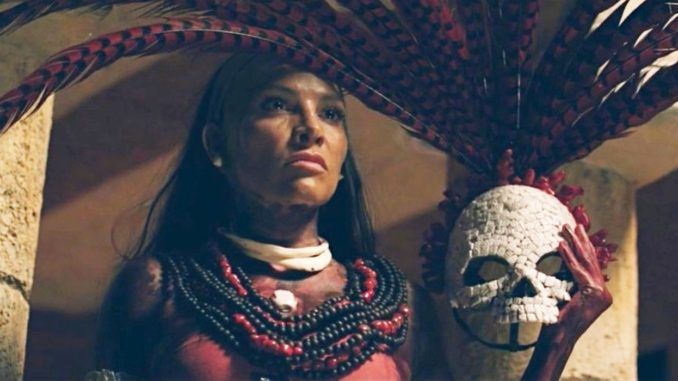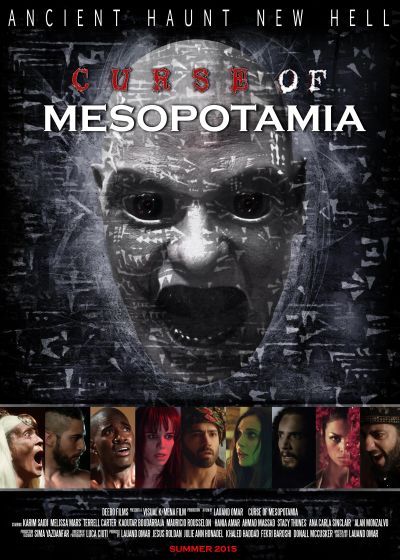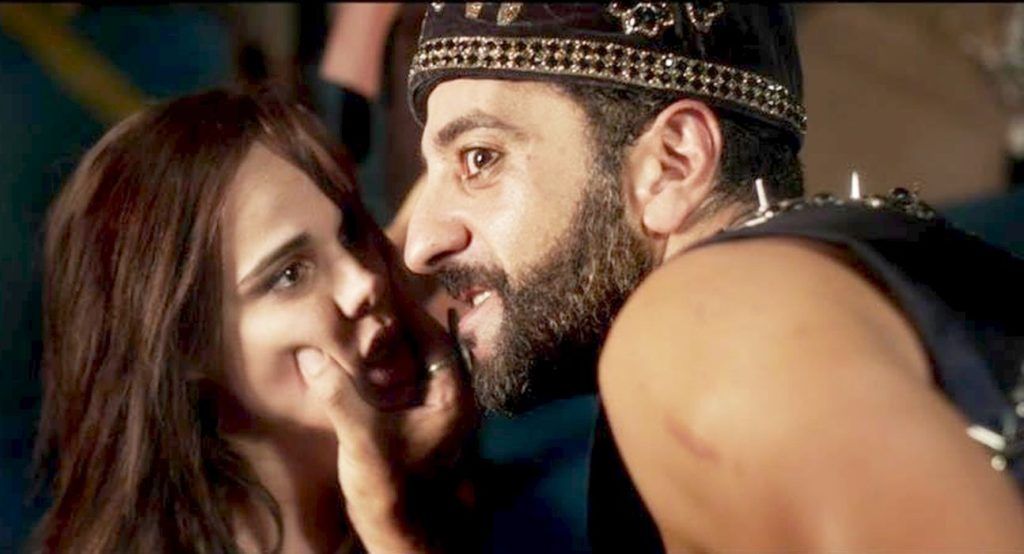
Rating: D+
Dir: Lauand Omar
Star: Stacy Thunes, Mauricio Rousselon, Melissa Mars, Terrell Carter
Sadly, this is another case where the story behind the film is likely considerably more interesting than the movie itself. Though I will admit, there is some argument over the degree to which this can be considered an “Iraqi” film. Moria Reviews points out that Omar lives in Mexico, which is also home to the production company, and concludes “it should correctly be listed as a Mexican film.” From a financial perspective that’s the case, but culturally, it has little or nothing in common with actual Mexican movies, although Rousselon is from there. I’m comfortable agreeing with the IMDb on this one, and they classify it as “Iraq/Jordan”. In filming location as well as spirit, that beats slapping a very ill-fitting sombrero on it.
Omar himself is a child of the world. A Kurd born in Syria, he grew up in Germany, studied film production in both America and Canada, before returning to Kurdistan to make his first feature film, women’s rights drama Bekhal’s Tears in 2005. He then worked in television for almost a decade, going back to the world of movies with Curse of Mesopotamia. Omar says he was “bored of watching the same horror movie over and over again, and bored of watching only war/terrorist movies about the Middle East.” Instead, he took inspiration from the legend of Newroz, the Kurdish celebration of the arrival of spring, which dates back to the overthrow of the evil king Zuhak, in a 6th century BC rebellion, led by a heroic blacksmith, Kawa.
 He had written the script a few years earlier, but put it aside until financing came together, and production was able to start in July 2014, taking place in Erbil, the capital of Iraqi Kurdistan. However, at almost the same time filming began, the forces of ISIS entered the area, and just two weeks into shooting, Omar had to pull up stakes, with ISIS barely ten miles away. “They got too close,” he remembers, “Some of our Kurdish local crew went to fight them, flights got cancelled, massacres and real life horrors [were] happening all around us.” The production had to regroup and acquire new financing, with filming restarting seven months later in the relative safety of Jordan. Omar took the chance to tweak some elements, including adding an ISIS-inspired character to the script.
He had written the script a few years earlier, but put it aside until financing came together, and production was able to start in July 2014, taking place in Erbil, the capital of Iraqi Kurdistan. However, at almost the same time filming began, the forces of ISIS entered the area, and just two weeks into shooting, Omar had to pull up stakes, with ISIS barely ten miles away. “They got too close,” he remembers, “Some of our Kurdish local crew went to fight them, flights got cancelled, massacres and real life horrors [were] happening all around us.” The production had to regroup and acquire new financing, with filming restarting seven months later in the relative safety of Jordan. Omar took the chance to tweak some elements, including adding an ISIS-inspired character to the script.
Given such a troubled route to the screen, he has to be lauded for persistence in the face of adversity. Unfortunately, the end result isn’t very good, being mostly a bland, vaguely reincarnation themed story. It begins in the West where therapist Dr. Barbara (Thunes) assembles a group of patients who are all experiencing nightmares set in the same time and place. Which would be, 6th century BC Kurdistan, though quite how an LA therapist is able to identify not just the general era, but the specific castle concerned, is never adequately explained. Anyway, courtesy presumably of some very generous health insurance plans, she tales the five patients to the Middle East, setting them up in the castle featured in their dreams.
What could possibly go wrong? Not least because the quintet are almost hand-picked for blatant diversity, including Hispanic veteran John (Rousselon), adult film star Amira (Mars), gay bisexual guy Tony (Carter), and that wannabe ISIS guy, Ahmed, who, for obvious reasons, is not exactly happy with anyone else in the group. It feels less like an organic group of individuals, than the green room at a Jerry Springer taping. Turns out they are all reincarnated versions of characters from over a couple of millennia ago, who played key roles in the rebellion. For example, John was previously Kawa, Amira was Queen Lale, the wife of Zukak, and so on. Gradually, the past and present begin to blur together, death in one becoming true in the other. There’s a demon involved too.
The old saw about reincarnation came to mind here. Why does everyone who comes back, get to do so as Cleopatra, and not “latrine emptier #3”? Though to be fair, not all the characters here at on top of the Mesopotamian totem-pole, they do all have significant roles to play in events. The main problem is, the depiction of life six centuries before the birth of Christ is thoroughly unconvincing, even if we put to one side the way everyone there speaks English (an understandable concession for commercial purposes). No-one here is remotely credible, instead looking as if they are attending a Mesopotamian-themed frat kegger, having come straight from the “Sexy Arab” aisle at Party City.

Mars does at least have fun in her role as the evil Queen, chewing scenery to entertaining effect. However, she gets a sword-fight which has to rank as among the slowest I’ve seen in several years. While I can respect the intent, they should have simply had the two actresses involved wrestling in jello, or the local equivalent thereof. About the only element which will stick in my mind is the impressively brutal method Zuhak has of dealing with those who displease him (which would be, just about anyone). If you think “whack-a-mole”, except with just the one burrow from which the victim can emerge… Yeah. It’s a degree of innovation from which the rest of the film would have benefited.
I don’t wish, in any way, to belittle the effort which went into making this. Making a film in Iraq is hard. For our film festival, we frequently get letters from film-makers in that part of the world, basically begging for help due to both sanctions and the economic situation there. Add in the cultural sensitivities, and a horror film is potentially even more problematic. So fair play to Omar. But if this indeed is the first English-language horror film to come out of the Middle East, you have to think there might be good reason why all other film-makers have decided against it – and not just due to an invasion by ISIS.
This review is part of our October 2024 feature, 31 More Countries of Horror.
